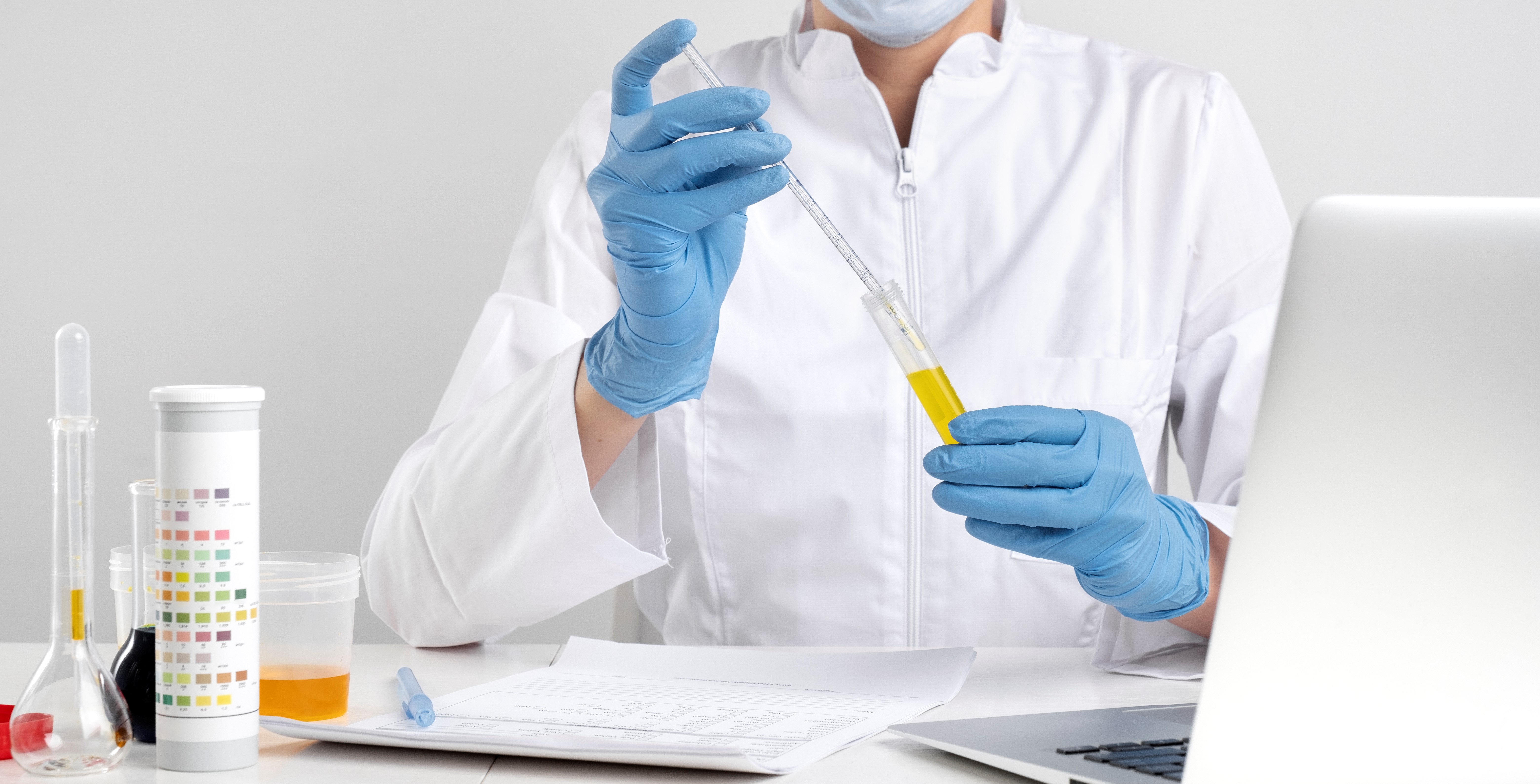A doctor's visit is charged from CZK 1,500 depending on the examination.
Would you like to submit the form?

Syphilis (or Lues venerea) is a specific infectious disease that is one of the most well-known sexually transmitted diseases. It affects organs including the skin, eyes, circulatory system, musculoskeletal system and central nervous system. It is mainly sexually transmitted and is caused by the bacterium Treponema pallidum.
Syphilis is transmitted in several ways
Symptoms of syphilis
Symptoms of the disease are not specific. The disease usually starts with one or more painless sores (ulcus durum, hard ulcer), sores (primary phase of infection) that appear anywhere on the body, usually at the point of entry of the bacteria into the body, e.g. in the genital and anal area. Occasionally, however, it may also appear on the lips, throat or tonsils. Without appropriate treatment, the disease progresses to a secondary stage.
The secondary phase of syphilis occurs about 6 weeks to 6 months after the primary infection. Later symptoms are highly variable and may include redness of the hands and feet, swollen lymph nodes, rash over the body, increased temperature, weight loss, muscle and joint pain, and tonsillitis.
The tertiary phase of syphilis occurs 3-7 years after untreated primary infection. Complications may occur in the form of involvement of the skin, bones, internal organs - heart, liver, aorta, respiratory or central nervous system. This stage, unlike the primary and secondary stages, is not infectious but can cause destruction of the body.
Diagnosis of syphilis
Syphilis can be diagnosed by detecting the bacteria from a swab of the ulcer, by detecting antibodies in the blood or by laboratory examination of the urine = STD testing is suitable for all sexually active people as a preventive protection to avoid risks or when sexually transmitted diseases are manifested or suspected.
Treatment of syphilis
Antibiotics are mainly used in the treatment of syphilis. However, all sexual partners with whom the patient has had contact in the last two years should be treated at the same time. It is also important to remember that even after the infection has been overcome, there is no permanent immunity and a person can also fall ill repeatedly.
If you have had unprotected sexual intercourse and suspect that you have contracted an STD, make an appointment with your GP, gynaecologist or urologist as soon as possible. You can also contact our specialists using the telephone number or contact form.






Dr. Pavel Beno is an incredible professional, the others are also, although you pay, but it is worth it. You start to feel like a VIP when you arrive, it's about health, I will never let myself be treated elsewhere again. I'm looking forward to the check-up, Mr. ex-primary is a capacity,I recommend it to everyone and honestly,I've experienced a lot of hospitals where they treat you as if you're bothering them.






Atoda medical is not a just any medical clinic, it is a home away from home,when you need care for your children. From the time you walk in,till you leave, you feel welcome, you feel cared for, you feel understood. The Reception is clean, spacious, all the female and male receptionists were well trained and had impaccable manners, you see 2 sofas, large table for patients, beautiful & calming art on the walls, Czech ,English,German books on the shelf, if you get thristy ,while waiting, refreshments are available to you immediatelly. Bathrooms are on the premises as well. Doctors rooms are well lit,clean, equipped with tools needed for your care. I have comunicated with Atoda medical vias phone and email,and they were always prompt to reply. I highly recomend Atoda medical to individuals and Families. My children saw MUDR. Podstolska,who was kind, never rushed, was knowlagable,easy to communicate with, spoke Czech and English ( I am Czech, married abroad).